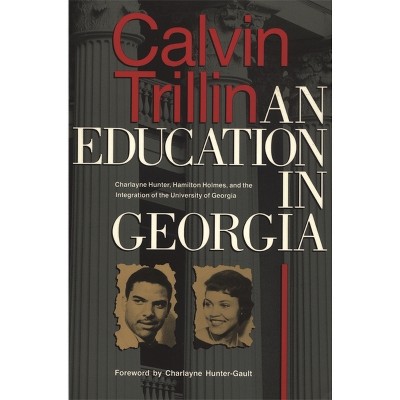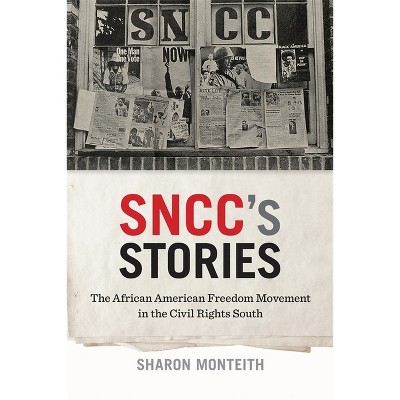About this item
Highlights
- Them Dark Days is a study of the callous, capitalistic nature of the vast rice plantations along the southeastern coast.
- About the Author: William Dusinberre is Reader Emeritus in American History at the University of Warwick.
- 576 Pages
- Social Science, Ethnic Studies
Description
About the Book
Looking at Gowrie and Butler Island plantations in Georgia and Chicora Wood in South Carolina, William Dusinberre considers a wide range of issues related to daily life and work there: health, economics, politics, dissidence, coercion, discipline, paternalism, and privilege.Book Synopsis
Them Dark Days is a study of the callous, capitalistic nature of the vast rice plantations along the southeastern coast. It is essential reading for anyone whose view of slavery's horrors might be softened by the current historical emphasis on slave community and family and slave autonomy and empowerment.
Looking at Gowrie and Butler Island plantations in Georgia and Chicora Wood in South Carolina, William Dusinberre considers a wide range of issues related to daily life and work there: health, economics, politics, dissidence, coercion, discipline, paternalism, and privilege. Based on overseers' letters, slave testimonies, and plantation records, Them Dark Days offers a vivid reconstruction of slavery in action and casts a sharp new light on slave history.Review Quotes
[This book] will, I believe, take its place among the most important studies of southern slavery we have and are likely to get.
--Eugene D. Genovese "African American Review"There is no other book quite like Them Dark Days. . . . His scholarship is awesome. Dusinberre has a great deal to say that is fresh and exciting about slavery, and his writing style is always clear and often eloquent. . . . I found Them Dark Days both stimulating and enjoyable.
--Charles Joyner "Coastal Carolina College"[A] vast and multifaceted new interpretation of slavery. Among his most impressive achievements is that he draws from these all-too-familiar sources so much that is fresh, provocative, and fully worthy of our attention. . . . Dusinberre's arguments are compelling.
--American Historical ReviewDusinberre certainly knows how to tell a good story. And if some of his material proves to be familiar to lowcountry scholars, these specialists will nevertheless appreciate his detective work in piecing together a coherent, moving account of the complex negotiations and struggles between tidewater slaves and their masters.
--Journal of Southern HistoryOne of the most ambitious and important studies on slavery to appear in recent years.
--Journal of American HistoryThe best local history of slavery published since Charles Joyner's Down by the Riverside . . . An important corrective to recent scholarship and adds new meaning to the neo-abolitionist interpretation.
--History: Reviews of New BooksThe book provides a wealth of information on the antebellum lowcountry rice industry and the families that dominated it.
--Agricultural HistoryWilliam Dusinberre has restored a tragic dimension to slave studies, and has done so with a thoroughness and persuasiveness that no future student of slavery will be able to ignore.
--Journal of Southwest Georgia HistoryAbout the Author
William Dusinberre is Reader Emeritus in American History at the University of Warwick. He is the author of "Henry Adams: The Myth of Failure" and "Civil War Issues in Philadelphia, 1856-1865."











